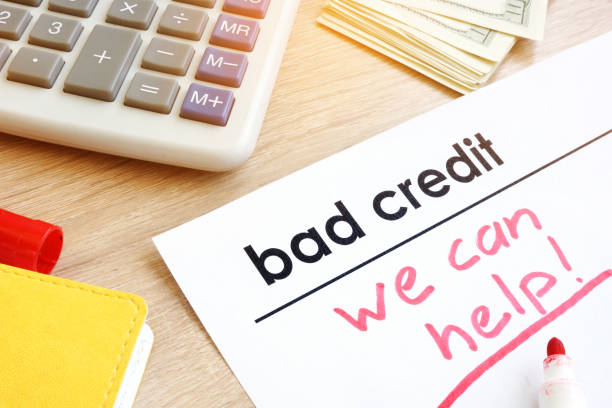Comprehending How Credit Rating Repair Functions to Boost Your Financial Health And Wellness
Understanding the mechanics of credit history fixing is crucial for any individual seeking to boost their financial health and wellness. The procedure incorporates recognizing errors in credit scores reports, contesting errors with credit report bureaus, and negotiating with financial institutions to address exceptional debts. While these actions can substantially affect one's credit history, the trip does not end there. Establishing and keeping audio monetary practices plays a just as crucial function. The question continues to be: what details methods can individuals use to not just correct their debt standing however also make certain long-term monetary stability?
What Is Debt Repair Work?
Debt repair work describes the procedure of improving an individual's creditworthiness by resolving mistakes on their credit scores record, working out financial debts, and embracing far better financial routines. This multifaceted strategy aims to improve an individual's credit history score, which is a crucial consider safeguarding car loans, charge card, and beneficial rate of interest.
The credit scores repair service procedure typically begins with a complete review of the individual's credit history record, enabling the identification of any errors or disparities. When mistakes are determined, the specific or a credit rating repair work specialist can initiate conflicts with debt bureaus to correct these issues. Furthermore, working out with creditors to resolve impressive financial obligations can further boost one's monetary standing.
Additionally, adopting sensible monetary practices, such as prompt expense payments, lowering credit application, and preserving a diverse credit rating mix, adds to a much healthier credit report profile. In general, credit scores repair works as a necessary method for individuals seeking to reclaim control over their economic wellness and protect much better borrowing possibilities in the future - Credit Repair. By engaging in credit report repair work, individuals can lead the way toward accomplishing their financial goals and boosting their general quality of life
Typical Credit Scores Record Mistakes
Errors on debt reports can dramatically affect a person's credit report, making it important to comprehend the usual types of mistakes that might arise. One common issue is inaccurate individual information, such as misspelled names, incorrect addresses, or wrong Social Safety numbers. These mistakes can lead to confusion and misreporting of creditworthiness.
Another common error is the reporting of accounts that do not belong to the individual, typically because of identity theft or clerical errors. This misallocation can unfairly lower a person's credit report. Furthermore, late repayments might be erroneously videotaped, which can take place as a result of settlement handling mistakes or wrong coverage by lending institutions.
Credit history limitations and account equilibriums can likewise be misstated, leading to a distorted view of a person's credit rating application ratio. Obsolete details, such as shut accounts still showing up as energetic, can adversely influence credit score evaluations. Public documents, including personal bankruptcies or tax liens, may be wrongly reported or misclassified. Understanding of these common mistakes is important for efficient credit monitoring and repair, as resolving them without delay can assist individuals keep a much healthier financial profile.
Steps to Conflict Inaccuracies
Contesting errors on a credit report is an important process that can aid recover a person's credit reliability. visit here The very first step involves obtaining a present copy of your credit score record from all three major credit score bureaus: Experian, TransUnion, and Equifax. Testimonial the report meticulously to determine any errors, such as wrong account information, balances, or settlement backgrounds.
Next, launch the conflict process by getting in touch with the appropriate credit rating bureau. When sending your disagreement, clearly lay out the mistakes, provide your proof, and consist of individual identification info.
After the conflict is submitted, the credit scores bureau will certainly investigate the claim, typically within 30 days. They will connect to the financial institution for verification. Upon conclusion of their examination, the bureau will certainly notify you of the result. If the disagreement is dealt with in your favor, they will certainly correct the record and send you an upgraded copy. Maintaining exact records throughout this procedure is important for efficient resolution and tracking your credit report health.
Building a Strong Credit Rating Account
Building a solid credit scores account is necessary for safeguarding favorable financial possibilities. Continually paying credit history card costs, financings, and other responsibilities on time is critical, as repayment background dramatically influences credit scores.
Moreover, preserving reduced credit history use ratios-- ideally under 30%-- is important. This means maintaining credit history card equilibriums well below their restrictions. Branching out credit score kinds, such as a mix of revolving credit report (charge card) and installation fundings (auto or mortgage), can likewise enhance credit profiles.
Routinely monitoring credit history reports for mistakes is just as important. People must review their debt records at least every year to identify inconsistencies and challenge any kind of errors promptly. In addition, preventing extreme debt queries can stop prospective unfavorable effect on credit history.
Long-lasting Benefits of Credit Fixing

Moreover, a stronger credit history account can promote better terms for insurance coverage premiums and also influence rental applications, making it easier to protect real estate. The mental benefits must not be overlooked; people who successfully repair their credit usually experience lowered tension and enhanced self-confidence in managing their finances.

Conclusion
In verdict, credit score fixing serves as a vital device for improving economic wellness. By determining and challenging errors in credit records, people can remedy errors that negatively impact their credit rating ratings.

The long-term advantages of credit repair extend far past simply boosted credit report ratings; they can substantially boost an individual's overall monetary wellness.